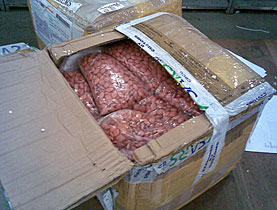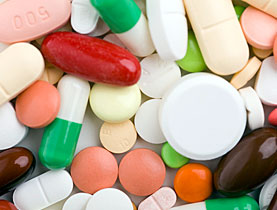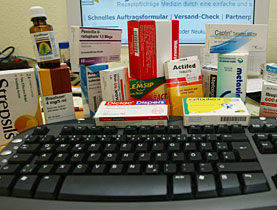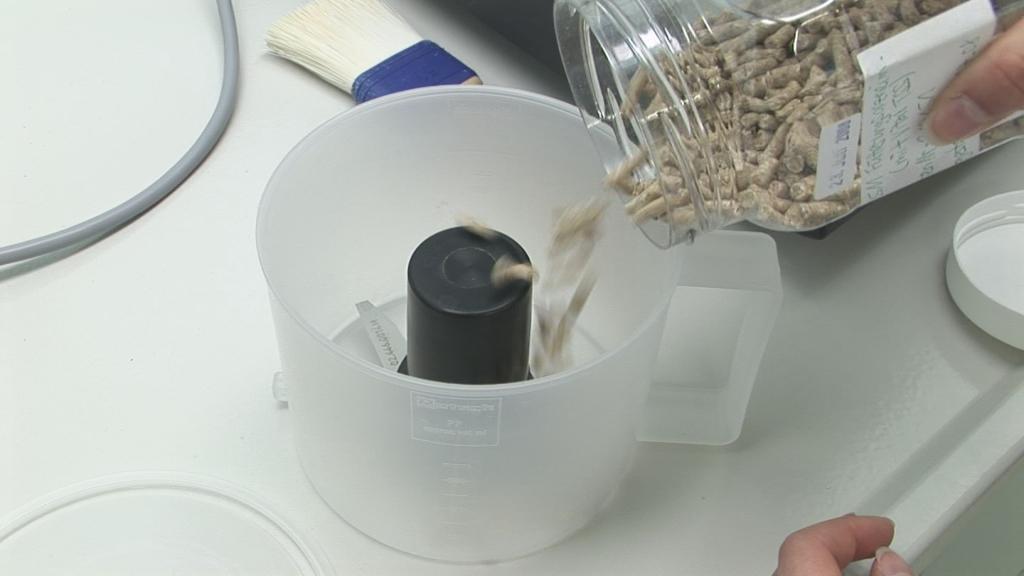Swiss fight internet supply of illegal medicines

Switzerland joined an international campaign this week to combat the sale of counterfeit and illegal medicines over the internet, highlighting the dangers.
The campaign, involving more than 20 countries, resulted in a series of arrests and the seizure of thousands of potentially harmful medical products, according to Interpol.
“The problem of supply of counterfeit and illegal medicines is a global problem and everywhere around the world this is a growing trend,” Ruth Mosimann, head of the Control of Illegal Medicines at the Swiss Agency for Therapeutic Products (Swissmedic) told swissinfo.ch.
“In Switzerland, it’s mainly a problem because people buy medicines through the internet from other countries,” she said.
It’s estimated that 50,000 illegal drug shipments are imported by individuals into Switzerland a year.
Mosimann said it was very important to run public campaigns and to warn people not to order such medicines from the internet because it was dangerous for their health.
“With our public campaigns, people know that it’s dangerous to buy medicines from the internet, but it is difficult to fight pharmaceutical crime because there are more and more people around the world who want to earn money with counterfeit medicines,” Mosimann said.
Counterfeit slimming
During the campaign, Swissmedic succeeded in having a website taken down that operated out of Switzerland and offered prescription potency medication and counterfeit slimming products.
Customers were also misled into believing from the website that there would be no problem with the customs in receiving the products.
The Swiss also contributed during the week with a two-day operation at Geneva airport.
“In Geneva, we focused on shipments from Asia, mainly courier and post packages. Swissmedic and the Federal Customs Authorities checked such parcels and we controlled whether they contained drugs or not. We assessed the contents of these parcels and blocked the illegal shipments,” Mosimann explained.
Customs
Out of 261 packages checked, 30 contained medicines. Nine packages were seized by the customs and their recipients will face administrative proceedings for the illegal import of medicines.
A statement from the federal authorities said the goods seized were products that might be dangerous to health such as hormones, psychotropic drugs and prescription-only slimming products.
It noted that based on the results of the two-day operation, it could be estimated that 1,400 illegal courier and post packages containing illegally imported medicines passed through Geneva airport a year.
And it added that since the illegal trade in medicines had reached the global dimensions of organized crime, international cooperation was becoming “increasingly important”.
Robert Brookes, swissinfo.ch
The operation was coordinated by Interpol and the World Health Organization’s International Medical Products Anti-Counterfeiting Taskforce (Impact) to highlight the dangers of buying medicines online.
National medicines regulators, police and customs worked together on the operation from November 16-20, focusing on the three principle components used by an illegal website to conduct their trade – the internet service provider (ISP), payment systems and the delivery service.
Internet monitoring revealed 751 websites engaged in illegal activity, including offering controlled or prescription-only drugs, 72 of which have now been taken down.
In addition, more than 16,000 packages were inspected by regulators and customs, 995 packages were seized and nearly 167,000 illicit and counterfeit pills confiscated.
Web security firm Sophos, a British company, said on November 16 that criminal gangs were making millions of dollars out of the A (H1N1) flu pandemic by selling fake swine flu drugs over the internet.
Sophos said it had intercepted hundreds of millions of fake pharmaceutical spam adverts and websites this year, many of them trying to sell counterfeit antiviral drugs like Tamiflu. Tamiflu is produced by Switzerland’s Roche group.
Sophos said many of the gangs behind the sites were based in Russia.

In compliance with the JTI standards
More: SWI swissinfo.ch certified by the Journalism Trust Initiative



You can find an overview of ongoing debates with our journalists here. Please join us!
If you want to start a conversation about a topic raised in this article or want to report factual errors, email us at english@swissinfo.ch.